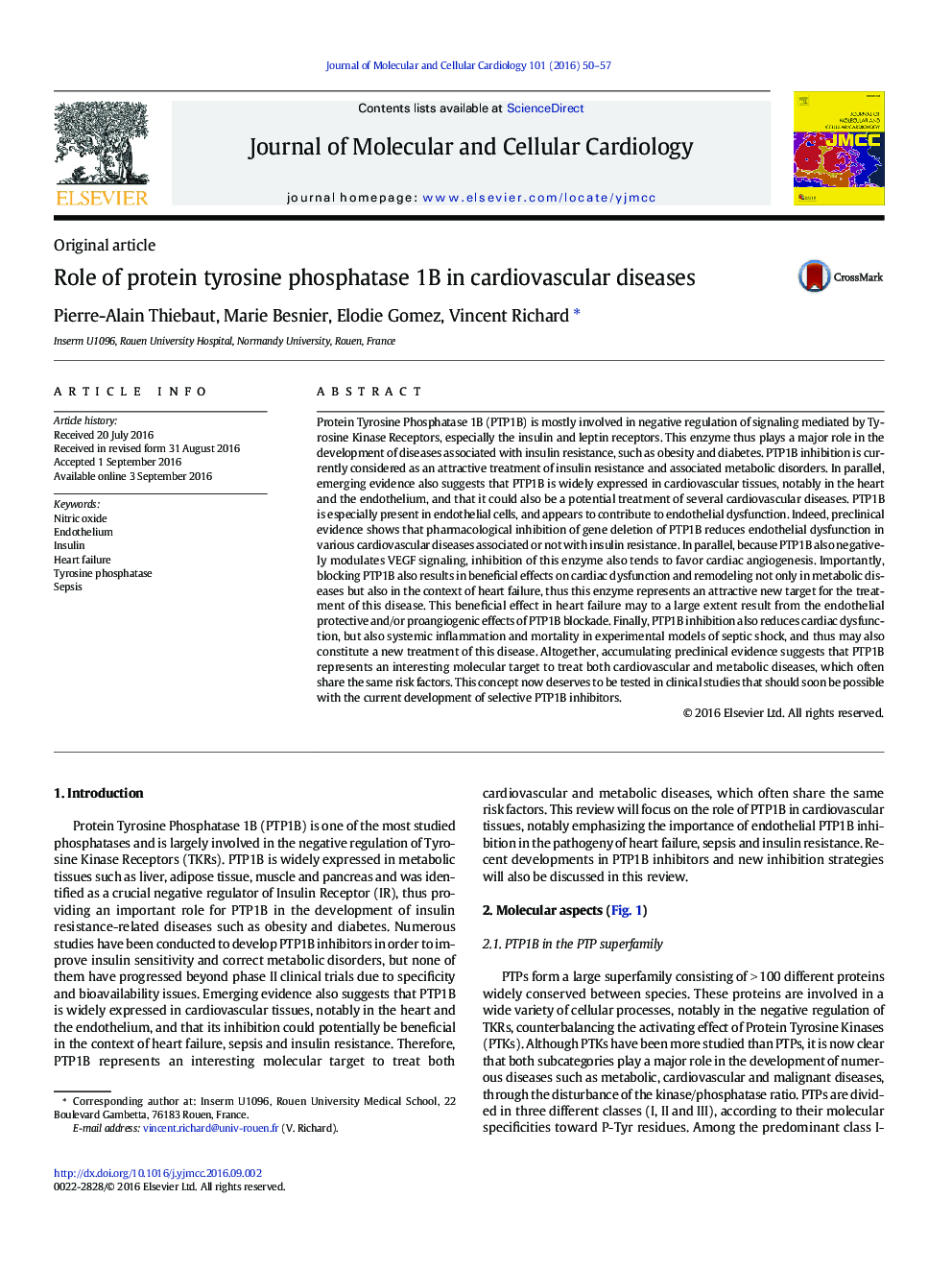| کد مقاله | کد نشریه | سال انتشار | مقاله انگلیسی | نسخه تمام متن |
|---|---|---|---|---|
| 5533681 | 1550405 | 2016 | 8 صفحه PDF | دانلود رایگان |

- Protein Tyrosine Phosphatase 1B (PTP1B) is mostly known for its role in insulin resistance
- PTP1B could also be a potential treatment of several cardiovascular diseases
- PTP1B is especially present in endothelial cells, and contributes to endothelial dysfunction
- PTP1B inhibition or gene deletion demonstrated beneficial cardiovascular effects in diabetes, heart failure and sepsis
- Hypothesis that PTP1B is a target to treat cardiovascular or metabolic diseases deserves to be tested clinically
Protein Tyrosine Phosphatase 1B (PTP1B) is mostly involved in negative regulation of signaling mediated by Tyrosine Kinase Receptors, especially the insulin and leptin receptors. This enzyme thus plays a major role in the development of diseases associated with insulin resistance, such as obesity and diabetes. PTP1B inhibition is currently considered as an attractive treatment of insulin resistance and associated metabolic disorders. In parallel, emerging evidence also suggests that PTP1B is widely expressed in cardiovascular tissues, notably in the heart and the endothelium, and that it could also be a potential treatment of several cardiovascular diseases. PTP1B is especially present in endothelial cells, and appears to contribute to endothelial dysfunction. Indeed, preclinical evidence shows that pharmacological inhibition of gene deletion of PTP1B reduces endothelial dysfunction in various cardiovascular diseases associated or not with insulin resistance. In parallel, because PTP1B also negatively modulates VEGF signaling, inhibition of this enzyme also tends to favor cardiac angiogenesis. Importantly, blocking PTP1B also results in beneficial effects on cardiac dysfunction and remodeling not only in metabolic diseases but also in the context of heart failure, thus this enzyme represents an attractive new target for the treatment of this disease. This beneficial effect in heart failure may to a large extent result from the endothelial protective and/or proangiogenic effects of PTP1B blockade. Finally, PTP1B inhibition also reduces cardiac dysfunction, but also systemic inflammation and mortality in experimental models of septic shock, and thus may also constitute a new treatment of this disease. Altogether, accumulating preclinical evidence suggests that PTP1B represents an interesting molecular target to treat both cardiovascular and metabolic diseases, which often share the same risk factors. This concept now deserves to be tested in clinical studies that should soon be possible with the current development of selective PTP1B inhibitors.
Journal: Journal of Molecular and Cellular Cardiology - Volume 101, December 2016, Pages 50-57